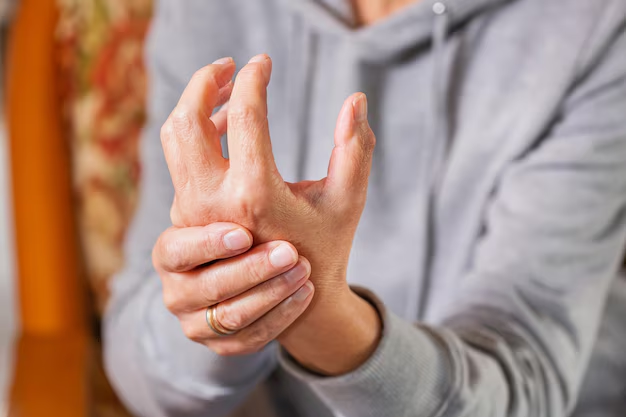Is Cracking Your Knuckles Really Harmless? Let's Dive into the Myths and Facts
Ah, the irresistible, oddly satisfying sound of cracking knuckles—whether it’s a habit or a momentary stress reliever, many people indulge in it. But one lingering question persists: Does cracking your knuckles lead to arthritis? Let’s explore this common inquiry, debunk the myths, and present you with the facts.
Understanding the Mechanics of Knuckle Cracking
Before jumping to conclusions, it's important to understand what's actually happening when you crack your knuckles. When you pull, bend, or twist your fingers, you're stretching the joint capsule containing synovial fluid. This fluid acts as a lubricant in your joints. As you stretch the capsule, the pressure decreases, creating bubbles that collapse with a sound—thus producing that familiar pop.
Why Do People Crack Their Knuckles?
- Habit: For some, it's simply a habit that has become second nature.
- Relief: Some people feel temporary relief or a sense of relaxation after cracking.
- Stress: It might serve as a coping mechanism during moments of stress or tension.
The Myth: Knuckle Cracking Leads to Arthritis
One of the most widespread beliefs is that cracking your knuckles will lead to arthritis, especially osteoarthritis. However, scientific evidence does not support this claim.
What Does Research Say?
Research over the years has largely debunked the idea that knuckle cracking causes arthritis. Studies have compared frequent knuckle crackers to non-crackers and found no difference in the incidence of hand arthritis. In fact, several studies have pointed out that arthritis is more likely influenced by factors such as genetics, age, weight, and previous joint injuries rather than the habit of knuckle cracking.
Common Types of Arthritis
Osteoarthritis: Often related to wear and tear of the joints, this type of arthritis is more common with aging and is influenced by factors like weight and previous injuries—not knuckle cracking.
Rheumatoid Arthritis: An autoimmune condition where the body's immune system attacks its own tissues. It's unrelated to outer physical activities like knuckle cracking.
Knuckle Cracking: Harmless or Harmful?
While cracking your knuckles is unlikely to cause arthritis, is it completely harmless? Let’s consider other potential effects:
Potential Negative Effects
- Swelling: For some, excessive knuckle cracking might lead to temporary joint swelling or a decrease in grip strength.
- Ligament Loosening: Although not common, regular forceful cracking could potentially strain ligaments around the joints.
The Only Proven Harm
The primary "harm" from cracking knuckles comes in the form of social annoyances. Many people find the sound irritating, so habitual cracking in shared spaces might not win any popularity contests.
Navigating the Facts: A Holistic View
Having busted the myth of arthritis, it's beneficial to approach knuckle cracking from a holistic point of view. Here are some actions and tips for those concerned or wanting to break the habit.
Alternatives to Knuckle Cracking
- Stress Balls: Squeeze stress balls when you feel the urge to crack your knuckles—this can provide a satisfying alternative.
- Stretching: Engage in hand and finger stretches to relax joints and reduce tension.
- Mindfulness Practices: Techniques such as meditation can reduce stress, potentially curbing the compulsion to crack knuckles.
Seeking Professional Insights
While the habitual act of knuckle cracking is largely harmless, if you experience discomfort or pain in your joints, consulting with a healthcare professional is wise to rule out underlying conditions.
Exploring Other Joint-Related Concerns
Knuckle cracking may not lead to arthritis, but other joint health concerns merit attention.
Maintaining Joint Health
- Exercise Regularly: Engaging in low-impact exercises helps maintain joint health by strengthening the muscles that support them.
- Nutrition: A balanced diet rich in omega-3 fatty acids, calcium, and vitamin D supports joint health.
- Weight Management: Maintaining a healthy weight reduces stress on joints, especially those that bear significant pressure like knees and hips.
Warning Signs to Watch
- Persistent Pain: Ongoing joint pain warrants a professional evaluation.
- Swelling or Stiffness: Chronic swelling, stiffness, or loss of function could indicate underlying conditions.
Final Insights: Breathe Easier
The sound of cracking knuckles may disrupt the quiet of a room, but rest assured it's unlikely to pave the way for arthritis. Busting this myth allows many to breathe easier and potentially relax even more. Remember, when it comes to your health and habits, knowledge is empowerment.
Summary of Key Points
- Cracking Myths: Knuckle cracking does not cause arthritis; factors like genetics and age are more significant influences.
- Mechanism & Effects: The popping sound is gas bubbles collapsing in the synovial fluid; it may cause minor effects like swelling but not arthritis.
- Healthy Practices: Consider alternatives and maintain overall joint health through exercise, nutrition, and mindful habits.
Quick Facts at a Glance:
- 🤔 Arthritis Myth: Cracking knuckles does not cause arthritis.
- 📊 Evidence: Research shows no link between knuckle cracking and arthritis.
- 🙅♀️ Social Impact: It can be annoying but isn’t harmful physically.
- 💪 Joint Health Tips: Exercise, nutrition, and stress relief for healthy joints.
- 🌟 Alternative Habits: Stress balls, hand stretches, and mindfulness for those wishing to quit.
Empower yourself with knowledge, maintain healthy joints, and remember that while knuckle cracking isn't a path to arthritis, being mindful of habits always brings benefits.

Related Articles
- Are Bananas Bad For Arthritis
- Are Tomatoes Bad For Arthritis
- Can An Inflamed Nerve Cause Arthritis
- Can Arthritis Be Cured
- Can Arthritis Be Reversed
- Can Arthritis Become Septic After Infection From Injection
- Can Arthritis Cause Numbness
- Can Arthritis Cause Swelling
- Can Cracking Knuckles Cause Arthritis
- Can Cracking Your Knuckles Cause Arthritis
